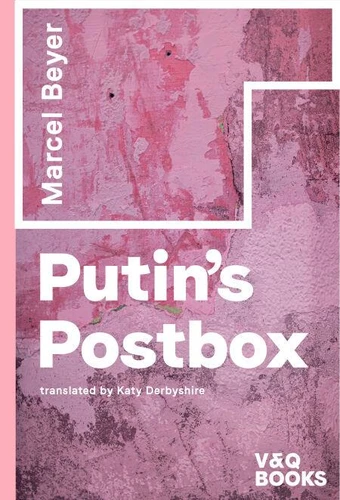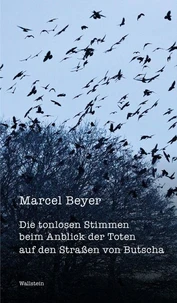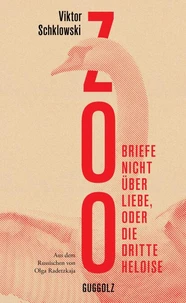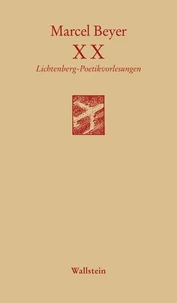Putin's Postbox
Par : ,Formats :
Disponible dans votre compte client Decitre ou Furet du Nord dès validation de votre commande. Le format ePub est :
- Compatible avec une lecture sur My Vivlio (smartphone, tablette, ordinateur)
- Compatible avec une lecture sur liseuses Vivlio
- Pour les liseuses autres que Vivlio, vous devez utiliser le logiciel Adobe Digital Edition. Non compatible avec la lecture sur les liseuses Kindle, Remarkable et Sony
 , qui est-ce ?
, qui est-ce ?Notre partenaire de plateforme de lecture numérique où vous retrouverez l'ensemble de vos ebooks gratuitement
Pour en savoir plus sur nos ebooks, consultez notre aide en ligne ici
- Nombre de pages200
- FormatePub
- ISBN978-3-86391-333-5
- EAN9783863913335
- Date de parution01/04/2022
- Protection num.Digital Watermarking
- Taille3 Mo
- Infos supplémentairesepub
- ÉditeurVOLAND & QUIST
Résumé
Eight essays on literature, language, art, Europe and life from one of Germany's most revered living writers.
After a visit to Putin's old postbox, the reader is taken to Dresden and Brixton, Gdansk and Minsk, diverted to birds, bees, stray cats and pet dogs, confronted with Stasi and KGB, Proust and Jah Shaka, puzzled by overcoats and anoraks, Francis Bacon and Vermeer, and lost (then found) in service stations and memorial centres.
Throughout, Marcel Beyer forges unexpected links and makes unpredictable leaps. "I work from the margins, partly very literally as I build my sentences, for instance when I start with the name of a colour rather than a noun, to explore how the sentence might be steered from there to a subject. In my reading, I am drawn to the outliers or, as malicious claims would have it, to the obscure. Central books: that is, those everyone can agree on, have never much interested me.
I am rarely tempted to explore the centre of my world in writing, and even if I did want to encroach upon a centre, I would have to choose a path from the outside. But outside, too, one advances to the heart of things." Inspired by the great W. G. Sebald, Beyer's playful literary investigations wend through the high points and horrors of Europe's artistic history, towards a profoundly personal conclusion.
Throughout, Marcel Beyer forges unexpected links and makes unpredictable leaps. "I work from the margins, partly very literally as I build my sentences, for instance when I start with the name of a colour rather than a noun, to explore how the sentence might be steered from there to a subject. In my reading, I am drawn to the outliers or, as malicious claims would have it, to the obscure. Central books: that is, those everyone can agree on, have never much interested me.
I am rarely tempted to explore the centre of my world in writing, and even if I did want to encroach upon a centre, I would have to choose a path from the outside. But outside, too, one advances to the heart of things." Inspired by the great W. G. Sebald, Beyer's playful literary investigations wend through the high points and horrors of Europe's artistic history, towards a profoundly personal conclusion.
Eight essays on literature, language, art, Europe and life from one of Germany's most revered living writers.
After a visit to Putin's old postbox, the reader is taken to Dresden and Brixton, Gdansk and Minsk, diverted to birds, bees, stray cats and pet dogs, confronted with Stasi and KGB, Proust and Jah Shaka, puzzled by overcoats and anoraks, Francis Bacon and Vermeer, and lost (then found) in service stations and memorial centres.
Throughout, Marcel Beyer forges unexpected links and makes unpredictable leaps. "I work from the margins, partly very literally as I build my sentences, for instance when I start with the name of a colour rather than a noun, to explore how the sentence might be steered from there to a subject. In my reading, I am drawn to the outliers or, as malicious claims would have it, to the obscure. Central books: that is, those everyone can agree on, have never much interested me.
I am rarely tempted to explore the centre of my world in writing, and even if I did want to encroach upon a centre, I would have to choose a path from the outside. But outside, too, one advances to the heart of things." Inspired by the great W. G. Sebald, Beyer's playful literary investigations wend through the high points and horrors of Europe's artistic history, towards a profoundly personal conclusion.
Throughout, Marcel Beyer forges unexpected links and makes unpredictable leaps. "I work from the margins, partly very literally as I build my sentences, for instance when I start with the name of a colour rather than a noun, to explore how the sentence might be steered from there to a subject. In my reading, I am drawn to the outliers or, as malicious claims would have it, to the obscure. Central books: that is, those everyone can agree on, have never much interested me.
I am rarely tempted to explore the centre of my world in writing, and even if I did want to encroach upon a centre, I would have to choose a path from the outside. But outside, too, one advances to the heart of things." Inspired by the great W. G. Sebald, Beyer's playful literary investigations wend through the high points and horrors of Europe's artistic history, towards a profoundly personal conclusion.






